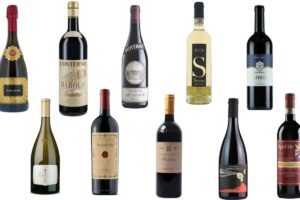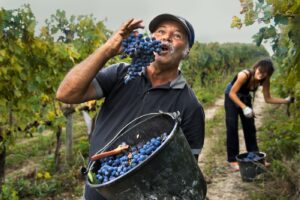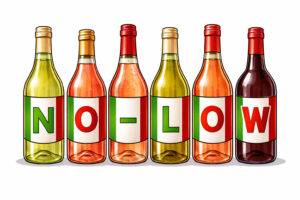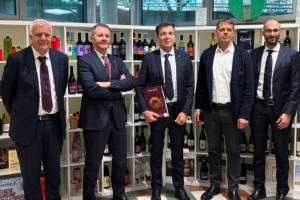Refunds, contributions, supports. Words among the most used in the hardest months of the Pandemic, for all the sectors of activity grappling with direct and indirect consequences of restrictions and closures that, we hope, will never come back. The world of wine did not make an exception, and in order to support wineries penalized in particular by the block of catering, among the many measures, the most appreciated ones, in the beginning, were the support to storage and the contributions for the reduction of production, that is of yields. Both are aimed at maintaining the value of wine prices, managing the quantity of product to be put on the market, and at the same time giving some liquidity to companies. But, especially on this second front, everything is practically on paper, because if on storage, as already reported by WineNews, everything is still blocked due to the delay on the front of the controls necessary for payments by the Ministry of Agriculture, which appointed the body in charge only on June 22, 2021, and not within two months of the decree that provided for the measure (issued in May 2020 and converted into law in October 2020, as already reported by WineNews, after the complaint of Confagricoltura), to be blocked are also the payments for the contributions to the production cut. To denounce the stalemate and raise its voice is the Consorzio del Vino Chianti, one of the largest and most important in Italy (3,000 producers for 15,500 hectares of vineyards for an average production of 800,000 hectoliters). “To the huge economic damages recorded for the closure of restaurants because of Covid, now is added the mockery of not being able to respond to the requests of buyers because bureaucratic delays on controls hold hostage the batches of wine that are the subject of storage requests. The producers find themselves, certainly not through their fault, in a serious and intolerable situation, the ministry has the duty to resolve this paradox as soon as possible”, says the president of the Consortium, Giovanni Busi, who, to WineNews, adds: “not only the mockery of having to wait for the controls, because in case a producer decides to put on the market the wine because there is a request, not only would lose the contribution, but according to a recent circular of Agea should also pay a penalty”.
“Before putting the wine on the market - explains Busi - the entrepreneurs must wait for the final controls, to be carried out by Agecontrol, provided for by the decree of the Ministry of Agriculture, without which Agea will not unblock the lots, authorizing the subsequent and hopefully immediate payment of the contributions promised to help companies in a liquidity crisis. But these controls have just been started well after the expiry date of the commitment signed by the companies, and in many cases they still haven't been there yet. It is very serious that the Ministry has not organized the controls during the months of blockage in order to allow, as soon as possible, to put our products back on the market. Chianti producers have signed sales contracts that they cannot respect because of bureaucratic delays, it is unacceptable. I appeal to Minister Stefano Patuanelli to take note of this absurdity and solve it as soon as possible. The companies, brought to their knees by Covid, now risk not being able to get back up because of the mismanagement of the Ministry”.
And now, to this, it is added the protest against the block of the payments of the contributions to the production cut. “Agea has not yet paid to wine companies the contributions for the reduction of production introduced during the Covid emergency. The resources should have arrived by December 2020, we are in July and the companies have not yet received a penny. It is an unacceptable situation. I appeal to the Minister of Agriculture, Mr. Patuanelli, to resolve the matter as soon as possible”, adds the director of the Consortium, Marco Alessandro Bani. In 2020, the Consortium recalls, the Ministry had issued a measure aimed at providing liquidity to wineries that undertook to reduce production by at least 15%. This reduction was aimed at not burdening the market, which saw reduced sales due to the pandemic. “The companies of the Consortium - explains Bani - have regularly applied and in the ministerial terms have presented the production declarations of the harvest 2020. For Tuscany, there were 644 applications submitted for compensation of 8,220,000 euros. The contribution had to be liquidated by the end of 2020, after the presentation of the production declarations, in order to allow Agea to verify the respect of the commitments undertaken. As of today, July 2021, many regular applications are still pending from the Agency, which seems to be still cross-referencing them with the regularity of contribution data, an operation that could and should have been done at the time”. The paradox, therefore, according to the Consorzio del Chianti, is that companies have reduced production upon request of the Ministry counting on the arrival of the indemnification promised and not yet arrived. “If they had produced normally - concludes Bani - they could have sold the wine obtained and they would have already cashed. It is not possible that a crossing of data between two public bodies requires more than one day of work, these delays are serious and inexplicable. Moreover, this umpteenth bureaucratic hiccup goes to weigh on companies already suffering from a lack of financial resources and that have every right to receive compensation. The Minister must intervene as soon as possible”.
Copyright © 2000/2026
Contatti: info@winenews.it
Seguici anche su Twitter: @WineNewsIt
Seguici anche su Facebook: @winenewsit
Questo articolo è tratto dall'archivio di WineNews - Tutti i diritti riservati - Copyright © 2000/2026







































































































































































































